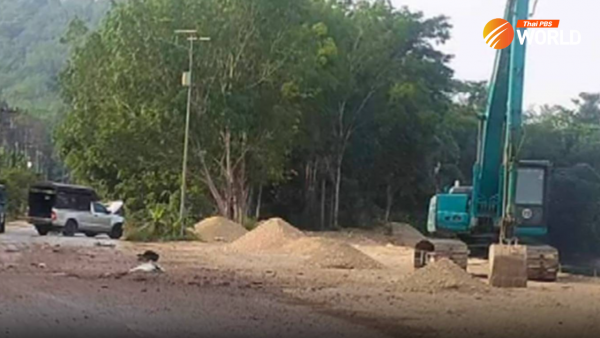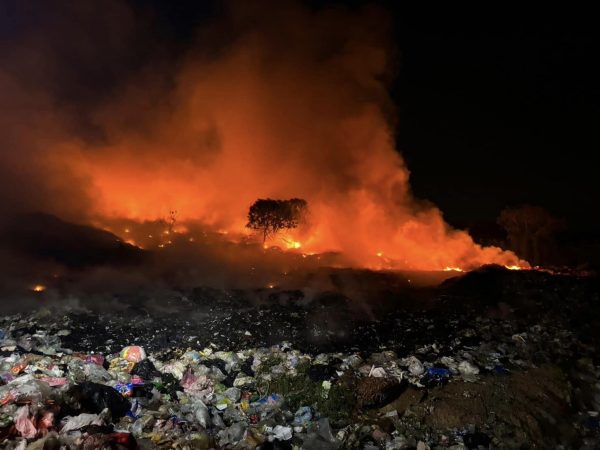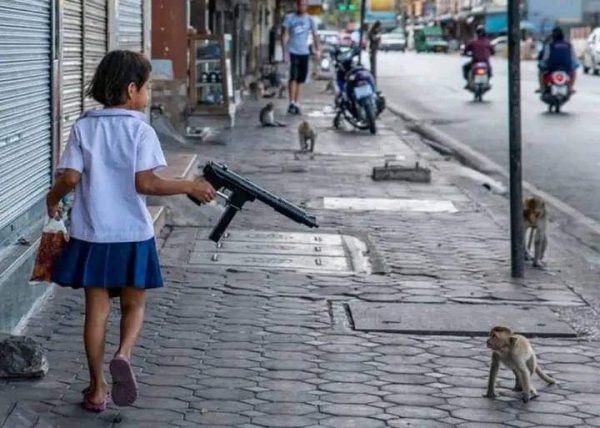How the hospitality workforce on the Andaman coast is adapting to survive the coronavirus pandemic
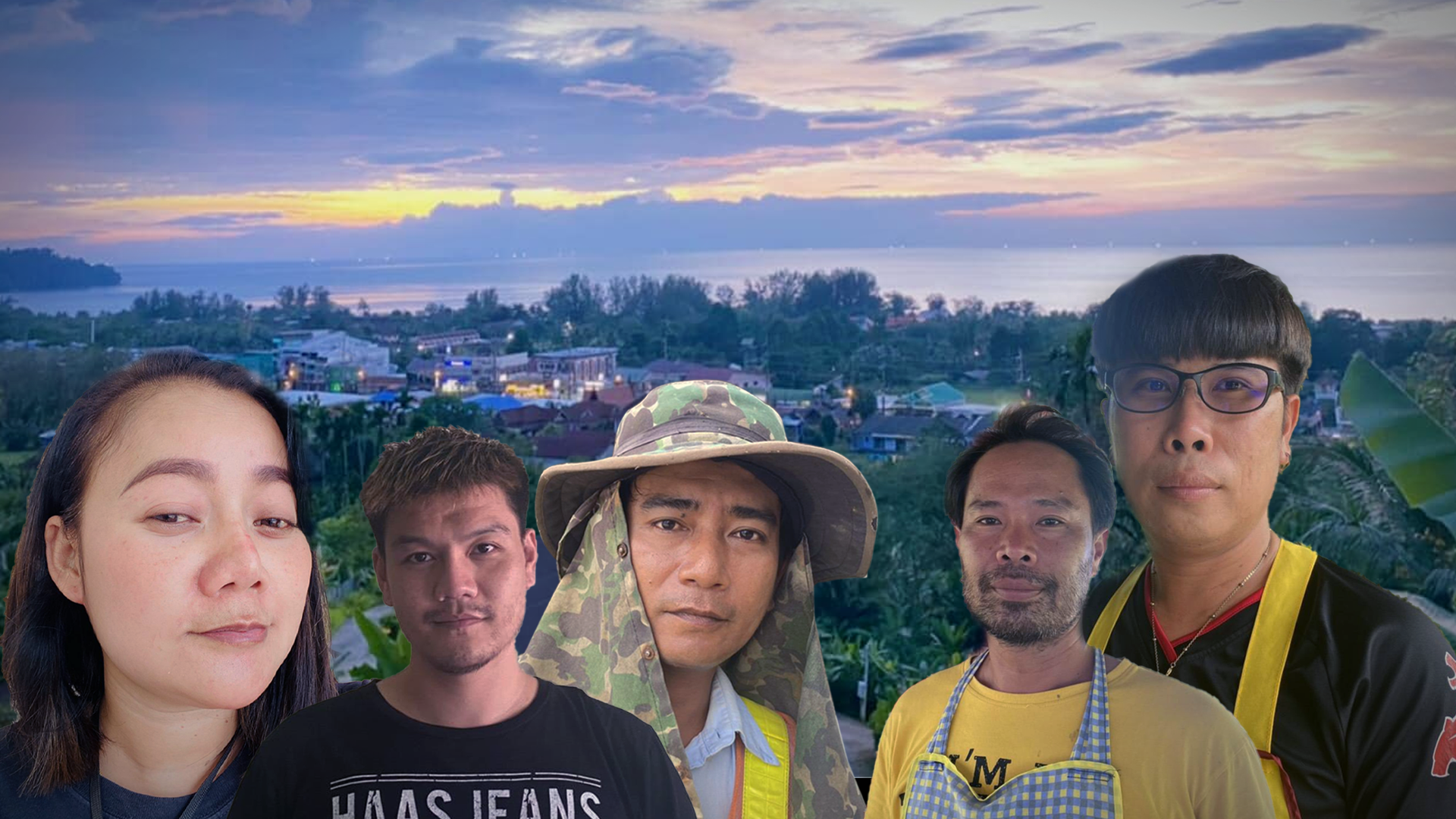
In 2004, when a deadly tsunami hit Thailand’s Andaman coast, Khao Lak in Phang Nga province and Phuket were left devastated. Thousands of people lost their lives, including Thais and foreign tourists. Most resorts along the beautiful beaches were completely destroyed.
For a year after the devastating wave struck, the two provinces were like ghost towns, but their resilient tourism sectors soon started to bounce back. The following year, when several resorts had finished reconstruction and renovation, visitors returned. Hotels on the resort island and in Khao Lak enjoyed almost full occupancy rates again.
17 years have now passed and both places are ghost towns once again. Due to the COVID-19 restrictions, Thailand has not yet opened its borders to foreign visitors, a major source of income. Without tourists, the towns have become eerily quiet, umpteen businesses have closed. Thousands of people, who used to work in the hospitality sector, such as resort and travel agency staff, chefs, tour guides and van transfer drivers, have been forced out of work since the first wave of the COVID-19 pandemic. The catastrophic situation seemed never ending when the second wave of the pandemic hit. Now, the third wave, with infections, as of June 28th, 2021, rising to nearly 250,000 and a death toll of 1,934 is here.
Compared to the tsunami, the coronavirus outbreak has hit these tourist destinations much harder.
Thai PBS World spoke with five people from the hospitality sector in Khao Lak and Phuket, whose lives have been upended because of the COVID-19 outbreak, about their current jobs, the adaptation of their skills and lessons learnt.

Thotsaporn Manopan, Online Marketing Executive
Thotsaporn was born and raised in the North of Thailand, in Chiang Mai province. A decade ago, he relocated to Khao Lak and had been working with an international luxury resort chain, before joining a travel operator as a marketing executive. The COVID-19 pandemic has hit him hard, since the first phase. He lost his job and had no income. “The third wave hit me even harder”, he said.
Today, he earns around 200-300 baht a day selling food and doing bakery deliveries. Recently, he has attempted to sell Sarika durian, a famous fruit from Kapong district, using social media marketing as well as direct sales to people he knows. He also builds a rapport with his customers, through his excellent communication skills, hoping that they will become regular customers. It remains, however, extremely hard to make money.
“There was some purchasing power during the first and second wave of pandemic, but this round (the third wave), people haven’t got enough money to spend anymore. Some days, I can hardly sell anything”, Thotsaporn said.
He supports the government’s plan to reopen the country, hoping some businesses can restart. “Things might get better, who knows. It couldn’t get any worse than now. I feel like a dead man walking.”
When asked what he has learnt from this crisis, he replied “There’s nothing on earth more certain than uncertainty. Living life cautiously and mindfully can help us survive.”

Haruethai Kaewtumthong, Accounting Manager
Haruethai was an accounting manager for a travel agency, who lost her primary source of income when the firm she worked for closed in April 2020. She still, however, has to pay her car loan, rent and other utility bills, let alone food and other personal expenses. So, she decided to sell food by delivery, a popular job amongst unemployed hospitality staff in Khao Lak.
“I’ve applied my financial and accounting skills to control the budget, like the amount of ingredients I have to buy to cook 30 portions of Chinese noodles, and to ensure that I don’t waste any of it. Calculating skills help me a lot.”
Haruethai, 42, set foot in Khao Lak a year after the tsunami and was working mainly in the hospitality sector. Despite having a very close relationship with her parents in Ubon Ratchathani, she does not plan to go back to her hometown. She said “I need to remain in Khao Lak and wait. I expect clients to come back, when our country reopens. To be honest, I was thinking about finding a new job but, if one day clients do return, who would work in the office? So, I have to stay, because I love my company, I love my job.”
“Hang in there and stay the course” is what Haruethai keeps telling herself to lift her spirits. “One day everything will be the same as before”, she said.
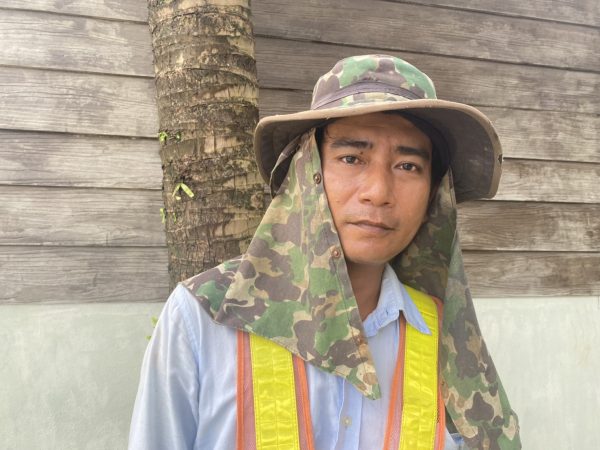
Anavat Vannanoon, Tour Guide & Van Transfer Driver
As roadworks in Khao Lak are ongoing, Anavat says he was fortunate enough to find a job at a construction site. “I was a van transfer driver, now I have switched to driving a truck, because I hold a Truck & Bus Class II driving license, which can be applied to a ten-wheel truck too. I’m so lucky. Besides, this work is near my place”, he said with a smile on his face.
The 40 year-old truck driver and construction worker said that, at the moment, he works a lot harder and has to be very frugal. “I’ve realised that I should have saved more money because saving is crucial. It’s helpful when crisis like this occurs.”
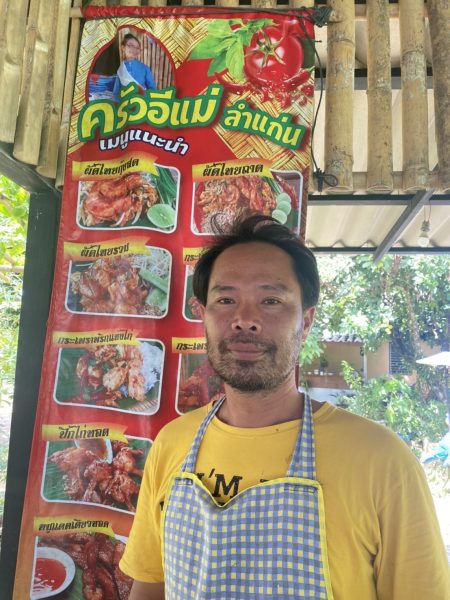
Narin Feadsura, Tour Agency Owner & Freelance Tour Guide
Despite the pandemic dragging Narin’s life into a dire situation, with the loss of his work, it also taught him many lessons. Life experiences, combined with knowledge and skills he has gained throughout his life, have turned out to be powerful weapons in the fight against the catastrophic COVID-19 outbreak.
In the good old days, Narin, 43, had a travel agency and worked as a freelance tour guide. After going out of business, he makes money from his cooking skills. “Everyone in my family is unemployed, so we decided to open a bistro in a garden owned by our family. The good thing is we don’t have to pay rent, have enough time to decorate and keep the garden tidy and grow new plants. Most importantly, we can stay home”, Narin said.
He told his family, including himself, not to overthink things, to talk to each other and stay calm. “The pandemic has taken a toll on everybody out there, not only us. So why worry?”
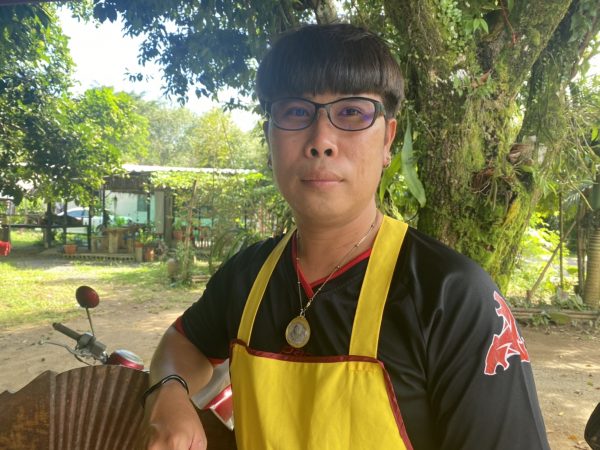
Tanakrit Podcharapunrnon, Restaurant Manager
Early last year, when the first wave of COVID-19 pandemic struck, it distant from Tanakrit’s life, until he was in the second group of staff to lose their jobs. “At that time, I had been working in a private hospital in Phuket, patients were still coming in, but the numbers dropped dramatically. It led to a massive loss of revenue, so I got laid off, with only one month’s notice” Tanakrit said.
He was in total shock, with absolutely no idea what to do next, as he had been a salaried employee throughout his working life. He knew, however, that he could not just do nothing, because of his tremendous debts. He was considering selling stuff online or growing plants but, after thinking it through, he ended up selling his favourite food.
“I love Pad Thai, so I went to many food shops and restaurants to taste their dishes. Then I invented my own recipe. My working experience, with food and safety standards, and my customer service skills, can be applied in my current job, like greeting customers or dealing with complaints.”
Tanakrit is sceptical about the government’s plan to reopen the country on October 1st. “Staying shut like this, we are unable to survive. Even though I must admit that I’m worried about the spread of the coronavirus, I do respect the majority’s desire to reopen Thailand. We must learn to live with the COVID-19. Vaccination is really essential after all. We will be less worried if all of us are vaccinated. In this case, I would totally agree with the reopening plan, as it is beneficial for the whole country,” he added.
By Jeerapa Boonyatus



